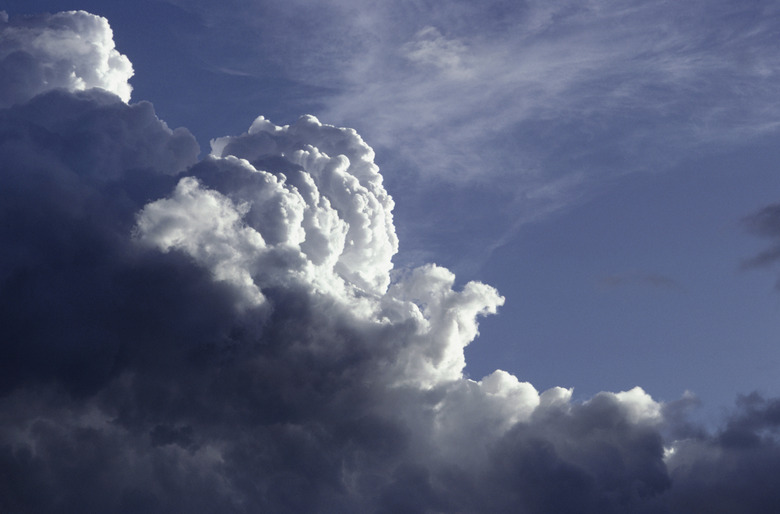Types Of Meteorology
Meteorologists have been directly responsible for saving the lives of millions of people, playing a critical role in both private business and government. Meteorology is the science of the atmosphere involving the examination of changing weather. A meteorologist is a person with a college degree that includes an emphasis on meteorological studies. There are numerous career options for a professional meteorologist.
Operational Forecasting
Operational Forecasting
Rapidly changing weather conditions can pose immediate threats to life and property. Operational meteorologists forecast everyday weather, such as clouds, temperature, pressure and precipitation. They also forecast hazardous weather such as hurricanes, large hail, flooding, damaging winds and tornadoes. A common focus of operational meteorology is to communicate current weather conditions with the public. Operational forecasting is critical because the most threatening events, such as tornadoes, can happen very quickly, requiring expertise in severe weather forecasting.
Aviation Weather
Aviation Weather
Aviation meteorology involves forecasting weather conditions for the commercial airline industry. Pilots must avoid ash from volcanoes, high winds and large hail that could cause damage to the aircraft or even cause it to crash. Aviation specialists also forecast where air turbulence is expected. If you've ever flown on a passenger plane, your flight was likely smooth due to the teamwork between pilots and aviation meteorologists.
Broadcast Meteorology
Broadcast Meteorology
The main job of a broadcast meteorologist is to present weather information on television or radio. Broadcast meteorologists play an important role in public warnings because they go on air during severe weather events to encourage their viewers to stay informed and take cover. They also help teach the public about basic weather terms and concepts, such as fog and thunderstorms. Broadcast meteorologists typically serve large cities with densely populated communities that rely on daily forecast information about visibility, rainfall amounts and temperature.
Applied Research
Applied Research
Applied meteorology involves the practice of applying current weather data and research analysis to practical problems. An applied research specialist almost always has at least a master's degree in a meteorology-related academic study. These meteorologists often develop new techniques and improve existing technologies. Applied research contributions include the development of modern Doppler weather radar, automated surface observation systems, satellite systems and public alert warning systems.
Cite This Article
MLA
Alonzo, Ben. "Types Of Meteorology" sciencing.com, https://www.sciencing.com/types-meteorology-8031/. 24 April 2017.
APA
Alonzo, Ben. (2017, April 24). Types Of Meteorology. sciencing.com. Retrieved from https://www.sciencing.com/types-meteorology-8031/
Chicago
Alonzo, Ben. Types Of Meteorology last modified August 30, 2022. https://www.sciencing.com/types-meteorology-8031/
